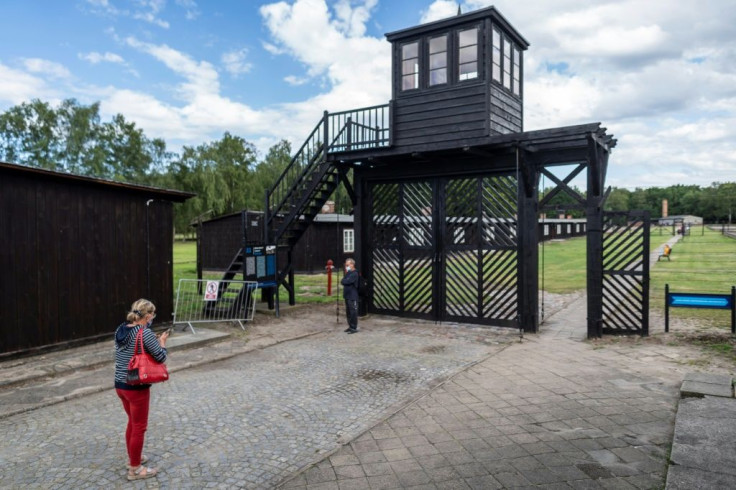Former Nazi Death Camp Secretary, 96, In Custody After Going On The Run
A 96-year-old former Nazi concentration camp secretary was remanded in custody on Thursday after spending several hours on the run in a bid to flee her trial in Germany to face charges of complicity in the murder of more than 10,000 people.
The court in the town of Itzehoe ordered that Irmgard Furchner be held in custody pending the resumption of the trial on October 19.
One of the first women to be prosecuted for Nazi-era crimes in decades, Furchner is charged for her role at the Stutthof concentration camp in occupied Poland where she was secretary to the camp commandant while still a teenager.
But she failed to show up on Thursday at the opening session of her trial.
Furchner had left her retirement home near Hamburg and taken a taxi to a subway station, said Frederike Milhoffer, a spokeswoman for the court.
Amid the chaos, judge Dominik Gross said the hearing has been suspended until October 19.
Lawyer Christoph Rueckel, acting on behalf of Holocaust survivors, said Furchner had written to the court around three weeks ago to say she planned to boycott the proceedings because they would be "degrading" for her.
"If someone remains silent in such a trial, or does not show up, it is rather shocking for these survivors, because after so many years they actually think that one could be more reasonable about it," he said.
Christoph Heubner, vice president of the International Auschwitz Committee, told AFP the escape attempt showed "contempt for the survivors and also for the rule of law".
It also highlighted potential shortcomings in the justice system, he said. "Even if the woman is very old, could not precautions have been taken (to prevent her from fleeing)? Where did she go? Who helped her?"
For Efraim Zuroff, an American-Israeli "Nazi hunter" who has played a key role in bringing former Nazi war criminals to trial, the conclusion that can be drawn was clear.
"Healthy enough to flee, healthy enough to go to jail!," he tweeted.
The suspect had been declared fit to face trial but only for two hours a day, according to Der Spiegel.

"Furchner has not done herself any favours by running away... Anyone who can make off alone in a taxi early in the morning at this age is presumably also in good enough health to face such a trial," it said.
The opening of the trial in Itzehoe came one day before the 75th anniversary of the sentencing of 12 senior members of the Nazi establishment to death by hanging at the first Nuremberg trial.
It also comes a week before separate proceedings in Neuruppin, near Berlin, against a 100-year-old former camp guard.
Prosecutors accuse Furchner of having assisted in the systematic murder of detainees at Stutthof, where she worked in the office of the camp commander, Paul Werner Hoppe, between June 1943 and April 1945.
The trial is taking place in a youth court as she was aged between 18 and 19 at the time.
Around 65,000 people died at the camp, not far from the city of Gdansk, among them "Jewish prisoners, Polish partisans and Soviet Russian prisoners of war", according to the indictment.
Seventy-six years after the end of World War II, time is running out to bring people to justice for their role in the Nazi system.
Prosecutors are investigating another eight cases, according to the Central Office for the Investigation of National Socialist Crimes.
In recent years, several cases have been abandoned as the accused died or were physically unable to stand trial.
The last guilty verdict was issued to former SS guard Bruno Dey, who was handed a two-year suspended sentence in July at the age of 93.
According to Rueckel, Furchner "handled all the correspondence" for camp commander Hoppe.
"She typed out the deportation and execution commands" at his dictation and initialled each message herself, Rueckel told public broadcaster NDR.
However, Furchner's lawyer told Der Spiegel ahead of the trial that it was possible the secretary had been "screened off" from what was going on at Stutthof.
© Copyright AFP {{Year}}. All rights reserved.





















